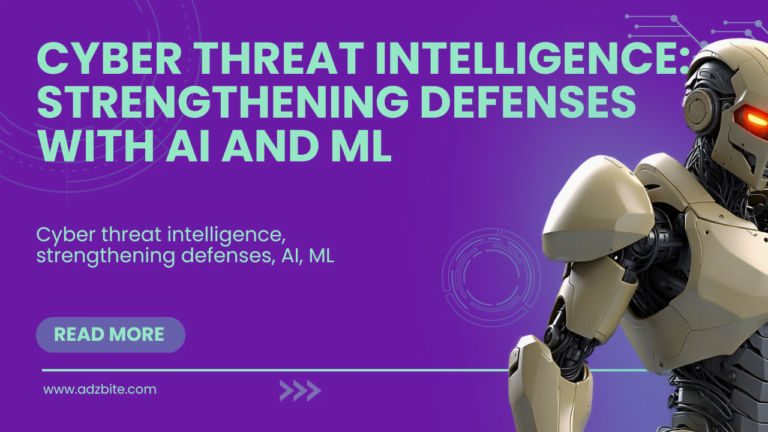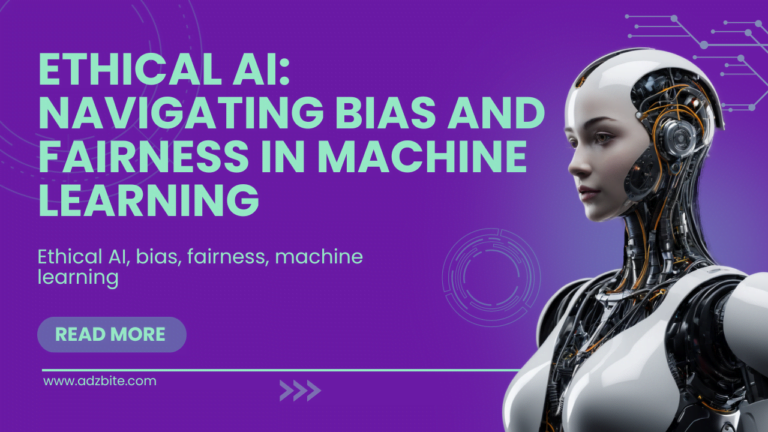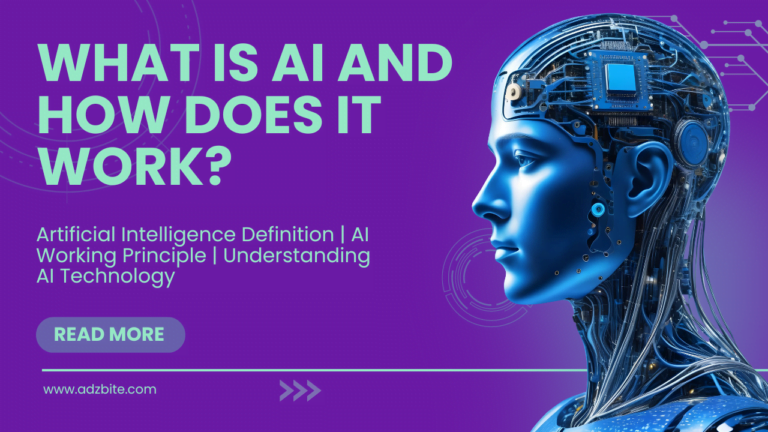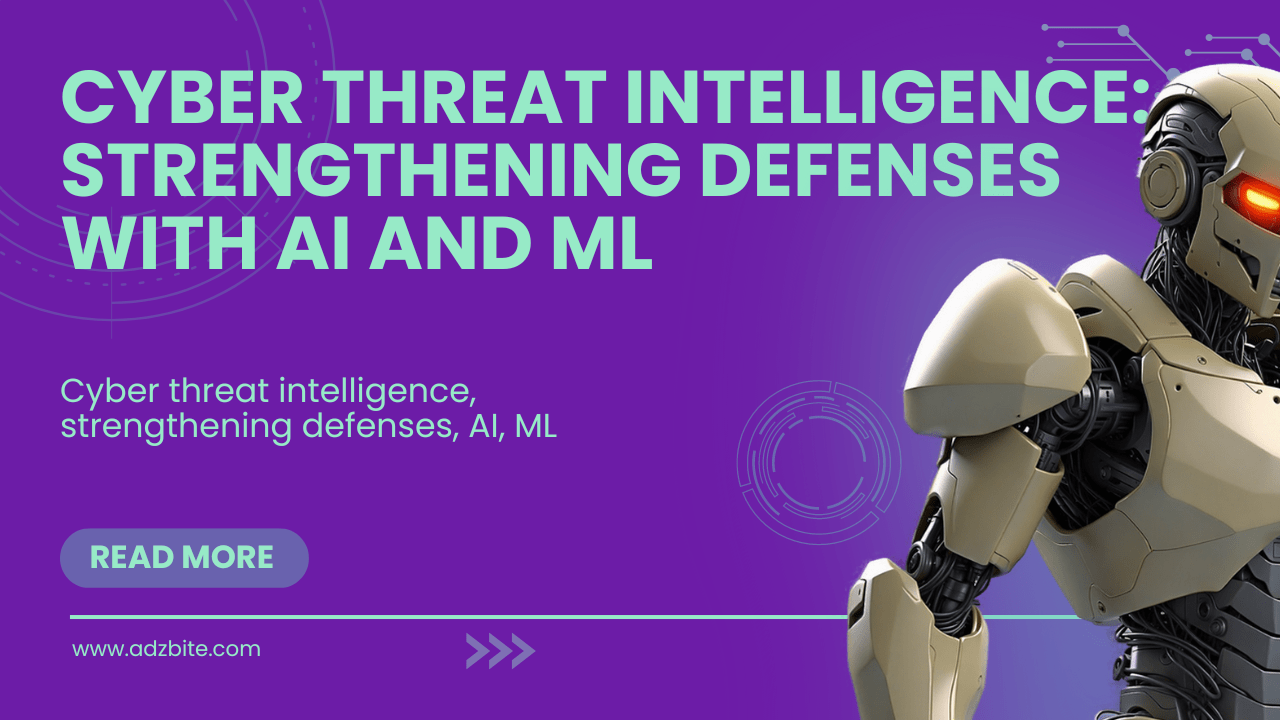Understanding Artificial Intelligence: Definition, Working Principle, and Applications
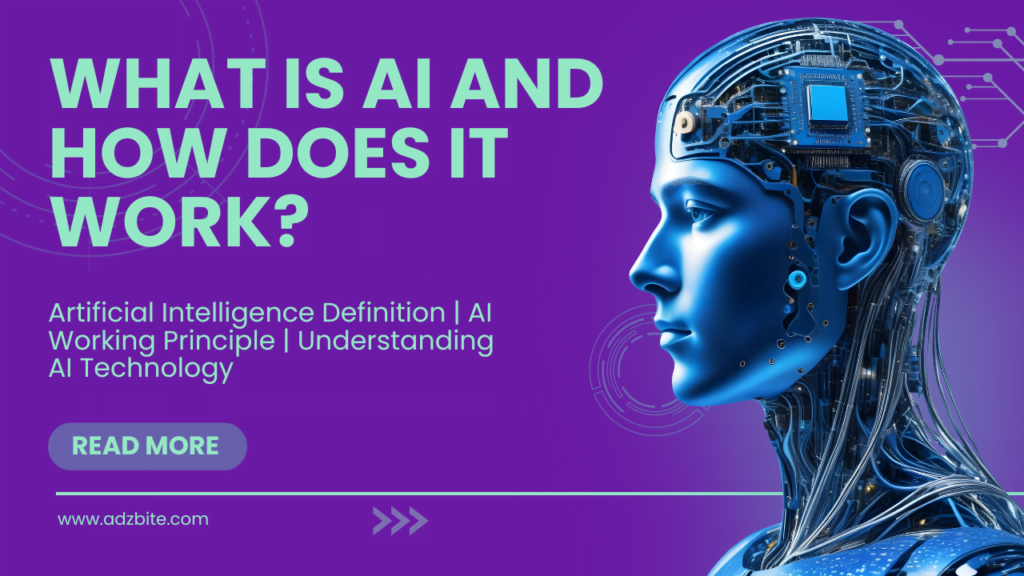
Artificial Intelligence (AI) is a rapidly evolving field that has captured the imagination of many. But what exactly is AI, and how does it work? In this blog post, we delve into the definition of AI, its working principle, and various applications that showcase its potential.
Artificial Intelligence Definition
To begin, let’s define what Artificial Intelligence actually means. AI refers to the simulation of human intelligence in machines that are programmed to think and act like humans. These machines are designed to mimic human cognitive functions such as learning, problem-solving, perception, and decision-making.
AI Working Principle
The working principle of AI revolves around the concept of algorithms and data. AI systems are trained using vast amounts of data, allowing them to recognize patterns, make predictions, and improve their performance over time. The core components of AI include:
Machine Learning:
Machine learning is a subset of AI that focuses on the development of algorithms that enable computers to learn and make decisions based on data. This is achieved through the use of training data, where the machine learns patterns and correlations to make predictions or decisions without being explicitly programmed.
Neural Networks:
Neural networks are a key component of AI systems, inspired by the structure of the human brain. These networks consist of interconnected nodes, or “neurons,” that process and transmit information. Neural networks are capable of recognizing patterns in data, such as images or speech, making them essential for tasks like image recognition and natural language processing.
Deep Learning:
Deep learning is a subset of machine learning that utilizes neural networks with many layers (hence the term “deep”) to learn from large amounts of data. This approach has led to significant advancements in AI, particularly in areas such as speech recognition, image classification, and autonomous vehicles.
Understanding AI Technology
AI technology spans a wide range of applications across various industries, revolutionizing how tasks are performed and decisions are made. Some notable examples include:
- Healthcare: AI is being used to analyze medical data, assist in diagnostics, and even develop new treatments.
- Finance: In the finance sector, AI algorithms are used for fraud detection, risk management, and trading.
- Retail: AI powers personalized recommendations, inventory management, and chatbots for customer service.
- Automotive: Autonomous vehicles rely on AI for navigation, object detection, and decision-making on the road.
- Customer Service: Virtual assistants and chatbots use AI to provide 24/7 support and improve customer satisfaction.
Conclusion
In conclusion, Artificial Intelligence is a transformative technology that continues to shape our world. By understanding its definition, working principle, and diverse applications, we gain insight into its vast potential to drive innovation and efficiency across various sectors.
Engaging FAQs about AI
1. What are some examples of AI in everyday life?
Examples of AI in everyday life include virtual assistants like Siri and Alexa, recommendation systems on streaming platforms, and fraud detection in banking.
2. How is AI different from human intelligence?
AI is designed to mimic human intelligence but lacks the consciousness and emotions that humans possess. It can process large amounts of data and perform specific tasks with precision, but it doesn’t have self-awareness or creativity.
3. What are the ethical considerations surrounding AI development and use?
Ethical considerations in AI include issues of bias in algorithms, privacy concerns with data collection, and the potential impact on jobs and society as AI becomes more integrated into daily life.
4. What is the future of AI technology?
The future of AI holds promise for advancements in healthcare with personalized medicine, further automation in industries like manufacturing and transportation, and enhanced decision-making capabilities across various sectors.
5. How can individuals learn more about AI and its applications?
Individuals interested in AI can explore online courses, attend workshops, and engage with AI communities. There are also many informative books and documentaries available to deepen understanding of this fascinating field.

